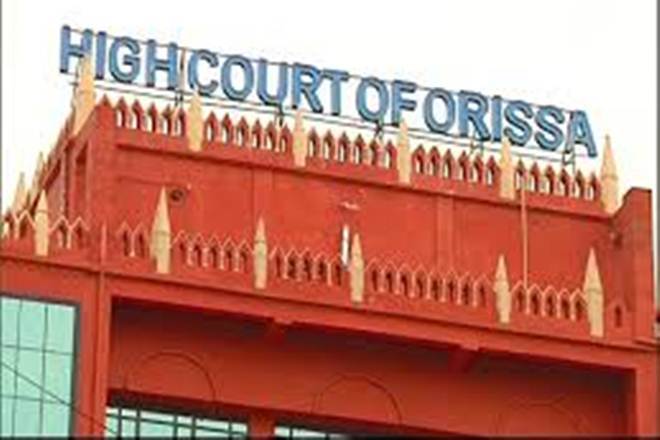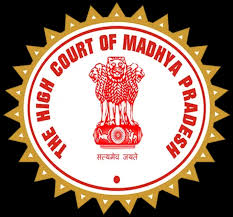T. Vaiphei, J.@mdashThis writ petition filed by the Tripura Bar Association is directed against the Notification No. F.5(7)-REV/87 dated 5.2.2002 issued by the Revenue Department, Govt. of Tripura by which the Advocates even if they enroll themselves as a Member of the Bar Council, are not allowed to practice deed writing without obtaining deed writing licence from the competent authority. The Bar Association also challenges the vires of Tripura Registration (Amendment) Rules, 1989 which are framed u/s 69(bb) of the Indian Registration Act, 1908.
2. Heard Mr. D.K. Biswas, learned Counsel appearing for the petitioner -Bar Association. I have also heard Mr. B.R. Bhattachajree learned senior Counsel assisted by Mr. S. Deb and Mr. T.D. Majumder, learned Counsel appearing on behalf of the respondents.
3. At the very outset, Mr. B.R. Bhattacharjee, learned senior Counsel for the respondents has raised preliminary objection on the maintainability of the writ petition on the ground that the Tripura Bar Association is an unregistered association and this association, which is not a legal entity, cannot sue in its name. Thus, according to the Counsel for the respondent, the writ petition is not maintainable and is liable to be dismissed on this score alone at the very threshold. The learned Counsel for the respondents further submits that where a number of individual are affected by an official act, they can ordinarily bring a legal proceeding to challenge that act only if such persons are joined together in the proceeding by name and that in case all the members of the Tripura Bar Association are adversely affected by the impugned notification, they ought to have joined in the writ petition by named. In support of his contention, learned Counsel for the respondents cited the following cases, namely, (1)
4. Per contra, Mr. D.K. Biswas, learned counsel for the petitioner submits that Tripura Bar Association is an association of all the advocates of Tripura and by the resolution dated 8.2.2002 passed by the members of the Association it has decided to file this writ petition and authorised the Secretary to do the needful vide Annexure 1 to the writ petition and that since the impugned notification has affected the rights of the members of the Association to practice deed writing and to appear before the Registering authority, the Association has locus standi to file this writ petition. Strong reliance is placed by the learned Counsel for the petitioner on the following decisions, namely, (1)
5. Admittedly, the association namely Tripura Bar Association is not a registered association under any provision of law. The law regarding locus standi is now firmly settled by the Apex Court in Vinoy Kumar''s case (supra). The Apex Court held at para-2 as under :
"Generally speaking, a person shall have no locus standi to file a writ petition if he is not personally affected by the impugned order or his fundamental rights have neither been directly or substantially invaded nor is there any imminent danger of such rights being invaded or his acquired interests having been violated ignoring the applicable rules. The relief under Article 226 of the Constitution is based on the existence of a right in favour of the person invoking the jurisdiction. The exception to the general rule is only in cases where the writ applied for is a writ of habeas corpus or quo warrant or filed in public interest. It is a matter of prudence that the court confines the exercise of writ jurisdiction to cases where legal wrong or legal injuries are caused to a particular person or his fundamental rights are violated, and not to entertain cases of individual wrong or injury at the instance of a third party where there is an effective legal aid organisation which can take care of such cases. Even in cases filed in public interest, the court can exercise the writ jurisdiction at the instance of a third party only when it is shown that the legal wrong or legal injury or illegal burden is threatened and such person or determined class of persons is, by reason of poverty, helplessness or disability or socially or economically disadvantaged position. Unable to approach the court for relief."
6. This writ petition is not a writ of habeas corpus or qua warranto or filed in public in public interest. Therefore, the short question which falls for determination is whether an association which is an unregistered Association can file this writ petition other than by way of PIL or representative action. In All Manipur DIC Supervisor''s Association''s case (supra) where the petitioners'' Association was found to be a non-recognised association, the learned Single Judge of this Court (P.C. Phukan, J) has held that in the absence of any evidence to show that the members of the petitioner association are unable to approach the Court by reason of poverty, disability or a socially or economically disadvantaged position ("little Indians") and that even if the Rules or Regulations of the petitioner association specifically authorised it to take legal proceeding on behalf of its members, the writ petition filed by the petitioner association was not maintainable. In the case at hand, the members of the petitioner association do not belong to that class of persons who, due to poverty, disability or socially or economically disadvantaged position ("little Indians"), are unable to approach this Court. All the members of the Association in their personal capacity or in a representative capacity can certainly file a writ petition, if they are really aggrieved by the impugned notification. As pointed out earlier, this writ petition is not even a public interest litigation or a representative action and, as such, the writ petition cannot be held to be maintainable.
7. The law regarding standing or locus standi in India has been succinctly summarized by the Calcutta High Court in
"(a) Individual Standing - Legal personality means persons who are regarded under the law as person being capable of exercising right or having duty have locus standi to move writ application. Individual person aggrieved by any action or inaction the part of a State or authority under Article 12 of the Constitution which infringed his right, can move the writ application. Similarly partnership firm, company corporation, labour union etc. can file a writ application if their rights are directly affected.
(b) Statutory standing - When statute has conferred standing or locus standi to any association or persons who may not have a direct personal interest can maintain writ application if it is established that such person or association had been conferred under the statute certain right and that if that right has been infringed. As for example trade union have a right to file writ application as the Industrial Disputes Act had conferred right conferred upon the trade union had been infringed. Similarly, under Motor Vehicles Act, Section 47(1) of the Motor Vehicle Act before its amendment, conferred power upon the association of operators to file objection and that in connection with the objection filed by those associations the associations had a right to move writ application.
(c) Public Interest and citizen participation -In case of public interest litigation the persons concerned who move such writ application not for enforcing his personal right but filed by public spirited and individual espousing the cause of large number of people who are suffering under some legal wrong or injury and such person or determined class of person is by reason of poverty, helplessness or disability or socially or economically disadvantaged position, unable to approach the Court for relief and in such case any member of the public can maintain writ application.
(d) Representative action or class action - Representative action or class action may be initiated by any members of the class affected by any order or action or inaction on the part of the government and/or authorities and in such a case a large number of persons of the same class may be affected by any action and in such case any one member of that class can file writ application and can prosecute the same as representative application after obtaining leave of the Court and in such case, the principle laid down in 0.1 Rule 8 is followed by which after the notice or issued pursuant to the order of the court, any member of the class who are affected by such order may join in such writ application as a petitioner and that the members of that class are bound by such decisions. This is permitted by law to avoid multiplicity of proceedings and in such case any decision taken in such case binds the members of class.
14. Unincorporated associations are not legal persons and as such, writ petitions are not maintainable. An association could be formed to protect the interest of consumers, tenants or other groups with the common interest but such group cannot move writ application. No aspect of the representative law has been changing more rapidly than the law governing standing and the standing barrier has been substantially lowered in recent years, but on the basis of the law relating to standing as in England or in America as also in India, it can be held without any difficulty that the writ petition at the instance of an association is not maintainable where the association itself is not affected by any order. The members of such association may be affected by common order and may have common grievance, but for the purpose of enforcing the rights of the members, writ petition at the instance of such associations is not maintainable. The door of the writ court could be made open at the instance of persons or authorities under the aforesaid four categories and to hold that every Tom, Dick and Harry can move the writ application would render the standing requirement meaningless and would introduce a procedure which is not judicially recognised."
8. In my considered view, the above summary of the laws relating to locus standi, with due respect, clearly reflects the correct legal position. I have carefully gone through the authorities cited by Mr. D.K. Biswas, learned Counsel for the petitioner and found that those decisions were rendered in the context of public interest litigation, which have no application on the facts of this case.
9. For what has been stated above, the inference is irresistible and the conclusion inescapable that the petitioner association has no locus standi to maintain this writ petition. Consequently, this writ petition is hereby dismissed. No order as to costs.
The interim order dated 14.2.2002 passed in CM. Appl. No. 76 of 2002 stands vacated.

